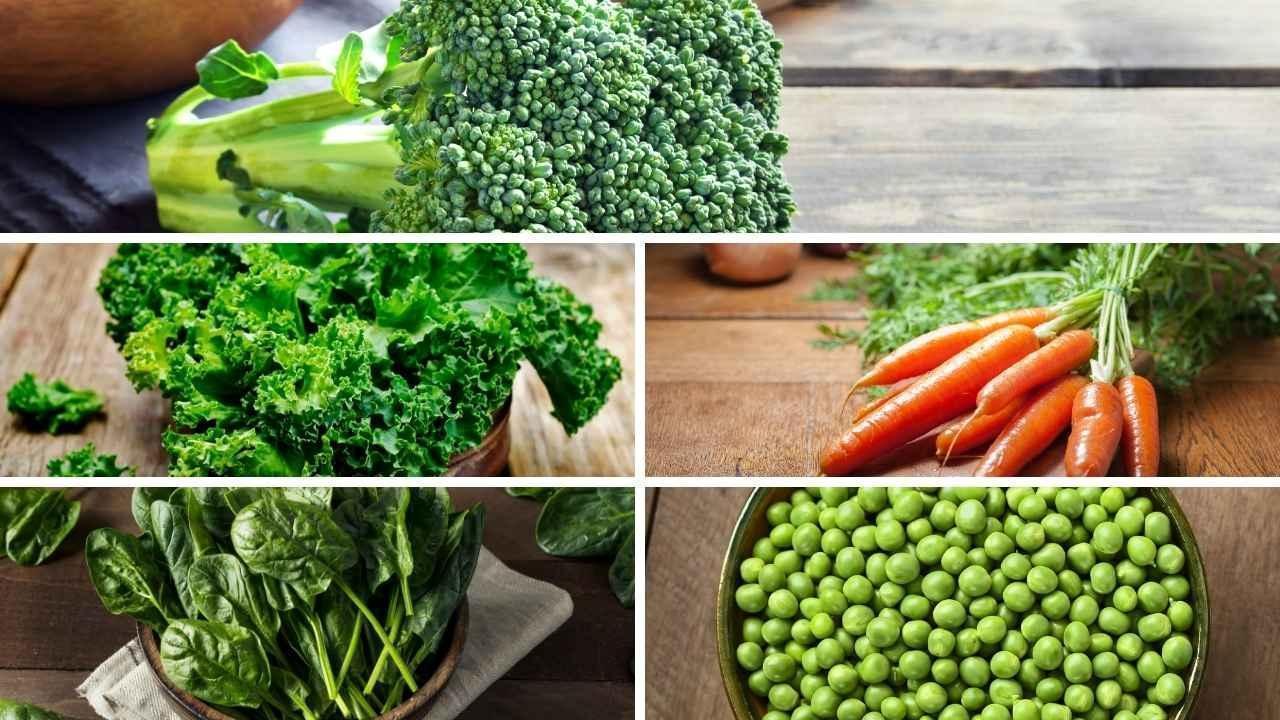You have not yet added any article to your bookmarks!

Join 10k+ people to get notified about new posts, news and tips.
Do not worry we don't spam!

Post by : Mikael Ariff
Vegetables are nature’s most reliable health allies — supporting energy, heart health and mental clarity. While all vegetables offer benefits, a subset deliver exceptional nutrient value per bite. These are often called “power greens”, packed with vitamins, minerals and other protective compounds even in small portions.
This piece outlines the leading power greens, explains their key health roles, and offers practical tips to make them part of everyday meals. Choosing the right vegetables is not about eating more, but about eating smarter to fuel and protect your body.
Regular vegetable consumption is one of the simplest lifestyle choices linked to longer, healthier lives. Medical experts consistently note that a vegetable-rich diet can help to:
Reduce high blood pressure
Support cardiovascular health
Help regulate blood sugar
Promote healthy digestion
Lower certain cancer risks
Vegetables supply fibre, potassium, folate (Vitamin B9), Vitamins A and C — nutrients essential for growth, immunity and overall resilience.
Some varieties deliver a high concentration of these nutrients while remaining low in calories. These nutrient-dense choices are the true power greens to prioritise in your daily plate.
Spinach ranks among the most nutritious leafy greens. One cup of raw spinach supplies generous amounts of Vitamin K, Vitamin A, iron and magnesium with minimal calories.
Benefits:
Supports bone and muscle health
Helps maintain healthy vision
Strengthens immune responses
Contributes to cardiovascular wellbeing
💡 Practical tip: Stir fresh spinach into smoothies, scrambled eggs or quick sautés. Light steaming improves nutrient absorption.
Kale is celebrated as a superfood thanks to its wide vitamin and antioxidant profile. It contains Vitamins A, C and K, plus calcium and iron.
Benefits:
Supports skin and eye health
Contributes to strong bones
Helps the body handle and remove toxins
If kale isn’t to your taste, consider alternatives like Swiss chard or beet greens, which offer similar nutritional value.
Broccoli is a compact source of Vitamin C, Vitamin K and dietary fibre. As a member of the cruciferous family, it contains compounds linked to disease prevention.
Benefits:
May lower risk for some cancers
Promotes healthy digestion
Bolsters immune function
Can help slow some aging processes
💡 Practical tip: Roast or steam broccoli to preserve its texture and nutrients. Avoid prolonged boiling to protect Vitamin C content.
The orange hue of carrots comes from beta-carotene, which the body converts into Vitamin A — essential for eye health and healthy skin.
Benefits:
Supports good vision
Reinforces immune defences
Helps maintain healthy, glowing skin
Carrots are versatile: eat them raw, add to salads, or include in soups and stews for a subtle sweet flavour.
Green peas may be small, but they are rich in protein, fibre and iron, making them an excellent plant-based option for sustained energy.
Benefits:
Supports muscle repair and sustained energy
Promotes healthy digestion
Helps maintain fullness and vitality
Peas pair well with rice, pasta or curries and are easy to incorporate into many dishes.
Top vegetables tend to share several features:
High nutrient density: Many vitamins and minerals in few calories.
Rich in antioxidants: They defend cells from damage and ageing.
Easy to add: Suit salads, soups, smoothies and hot dishes.
Digestive benefits: Fibre supports gut function and healthy cholesterol levels.
Research highlights vegetables such as watercress, Chinese cabbage, kale and spinach among the world’s most nutrient-packed options.
No advanced cooking skill is needed to eat better. Try these easy swaps:
Morning: Blend spinach or kale into smoothies or fold into scrambled eggs.
Lunch: Add broccoli or peas to grain bowls, salads or soups.
Dinner: Mix carrots and leafy greens into curries, stir-fries or roasted vegetable trays.
Snacks: Crunch on carrot sticks or cucumber with a dip like hummus.
💡 Note: Gentle cooking methods, such as steaming or quick sautéing, often make nutrients more accessible than eating everything raw.
Relying on a single vegetable won’t provide every nutrient your body requires. Aim for diversity across leafy greens, roots and cruciferous vegetables to cover nutritional bases.
For example:
Carrots supply Vitamin A
Spinach contributes iron and magnesium
Broccoli adds fibre and Vitamin C
Peas provide plant protein and energy
Together, these vegetables supply a broad spectrum of nutrients essential for balanced health.
Don’t overcook: Excessive heat reduces vitamin levels. Cook until tender but not mushy.
Choose colour: Different hues deliver different nutrients — include greens, oranges, reds and yellows.
Buy fresh and seasonal: Local produce often tastes better and retains more nutrients.
Portion wisely: Aim to fill half your plate with vegetables.
Use minimal oil: Light cooking retains nutrients and reduces excess calories.
The most beneficial vegetables are not necessarily exotic or expensive — they are the ones you eat regularly. Staples like spinach, kale, broccoli, carrots and peas are widely available and nutritionally powerful.
The key is consistent variety: mix different types, experiment with new recipes, and make vegetables a central part of meals rather than an afterthought.
With a daily focus on varied vegetables, you can expect improved energy, stronger immunity, clearer skin and better long-term health.
| Vegetable | Main Nutrients | Top Benefits |
|---|---|---|
| Spinach | Iron, Vitamin A, K | Bone support, improved vision |
| Kale | Calcium, Vitamin C | Detox support, healthier skin |
| Broccoli | Fibre, Vitamin C | Digestive health, immunity |
| Carrots | Beta-carotene | Vision and skin health |
| Green Peas | Protein, Iron | Energy, muscle repair |
This article is published for informational and educational purposes only. The content is based on reputable nutrition and medical resources. It is not a substitute for personalised medical advice. Readers should consult a qualified physician or registered dietitian before making major changes to diet or lifestyle.










Study Warns Using AI for Medical Advice Is ‘Dangerous’ as Users Get Inaccurate Health Guidance
A major new study reveals that artificial intelligence (AI) chatbots and tools may give misleading o

Top Sci-Fi Movies Streaming on Netflix This February: Must-Watch Picks for Genre Fans
A curated news-style guide to the best science fiction films currently available on Netflix in Febru

BCCI Central Contracts Shake-Up: Kohli, Rohit Moved to Grade B as Board Reshapes 2025–26 List
Virat Kohli and Rohit Sharma have been placed in Grade B in the BCCI’s 2025–26 central contract list

Dalal Street Spotlight: Top 10 Stocks Investors Are Watching as Markets Open on a High
Indian stock markets begin the week with strong momentum, and several blue-chip and mid-cap stocks a

Market Movers Today: Key Stocks Set To Watch In Indian Markets
Indian equity markets are poised for active trading as several major companies, including Bharti Air

Milan Welcomes the World: Inside the Grand Opening Ceremony of the 2026 Winter Olympics
The 2026 Winter Olympics opening ceremony in Milan marked a defining moment for global sport, blendi